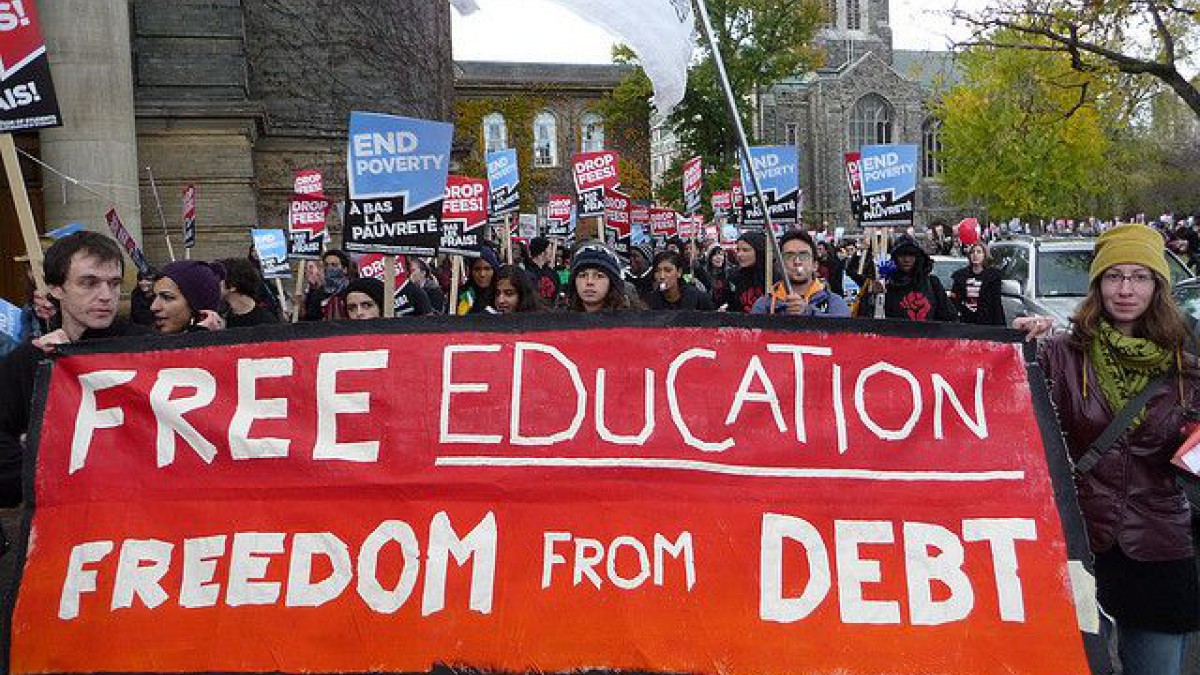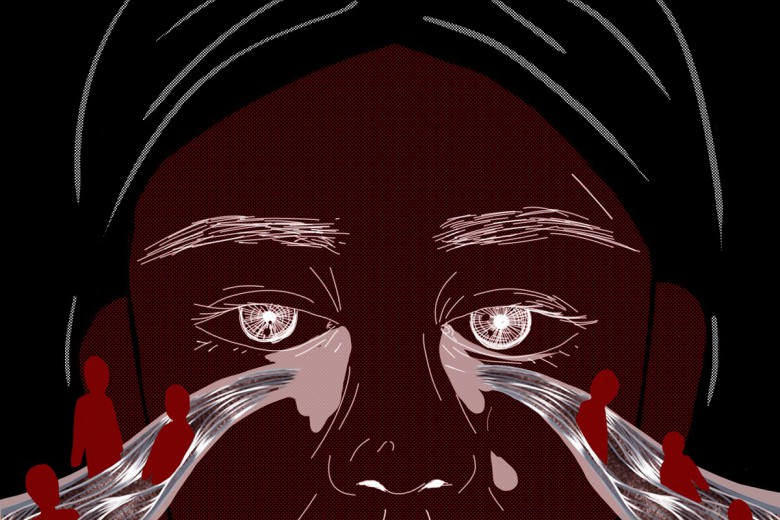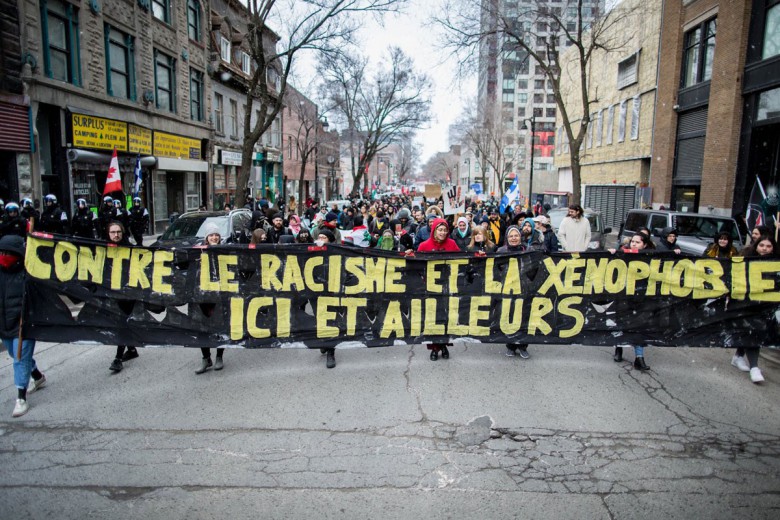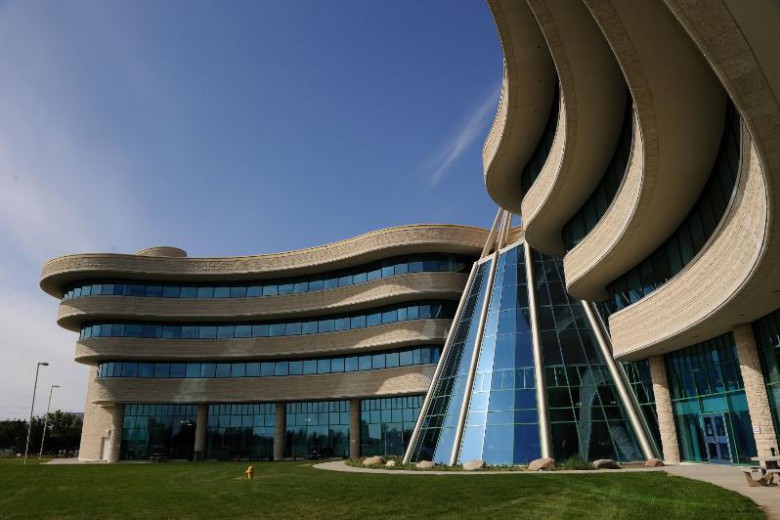In January, the University of Saskatchewan’s board of governors announced an average tuition increase for students of 2.4 per cent, on top of last year’s four per cent increase. The increase is part of the university’s so-called Third Integrated Plan, concocted in 2012 with no student involvement. It contained the infamous TransformUS initiative, a drastic cost-cutting plan that met fierce opposition from students, faculty, and staff. While the DefendUS campaign successfully defeated the initiative, its neoliberal agenda remains in place and skyrocketing tuition is still transforming the nature of post-secondary education in Saskatchewan.
According to Statistics Canada, Saskatchewan undergraduates now pay on average $6,659 per year, the second highest average tuition fees in Canada after Ontario. An average undergraduate student in the province today has to work triple the hours they would have in 1971 to cover their tuition. The provincial government has been steadily decreasing funding for post-secondary education and forcing the students to compete over grants and bursaries that are only available to qualified candidates. Saskatchewan is also a province with the second lowest minimum wage in Canada and the rent in Saskatoon has nearly doubled in the past decade.
Escalating tuition is part of a broader austerity agenda in which universities are corporatized and made increasingly inaccessible for poor, working-class, and Indigenous youth. While the proponents of austerity argue that the cuts and the tuition increases are necessary and inevitable, the truth is that they are a political choice made by university administrators and boards that are often stacked with representatives of corporations or people with ties to government. The ruling class is transforming universities in their own image: into elite, profit-driven institutions reserved for the privileged.
The claim that the tuition hike will increase the quality of education is a myth. In reality, it selectively forces poor and working-class students to work longer hours and take on more student debt. Teaching and research assistants, many of whom are international students who pay nearly the double the tuition of domestic students, are not unionized and face some of the lowest rates of pay for TAs and RAs in the country.
In the meantime, some are reaping disproportionate benefits from austerity. According to U of S professors Sandy Ervin and Howard Woodhouse, there are close to 200 senior administrators and prominent research chairs at the U of S who make an average of $200,000 per year. The annual salary of the U of S president amounts to $400,000 per year and surpasses the annual salary of the Prime Minister of Canada. Since 2000, student enrollment at the U of S has increased by 10.9 per cent, the number of faculty has increased by 11.6 per cent, while the number of administrators has increased by a staggering 104.5 per cent. These numbers clearly indicate who benefits from tuition increases: an elite class of university bureaucrats.
Corporatization and colonization at the U of S
The university prides itself on respecting Indigenous cultures. Over the last three years, the enrollment of Indigenous students at the U of S has increased more than 40 per cent. However, the relationship between the university and Indigenous communities remains fundamentally colonial by virtue of its partnerships with multinational corporations that perpetuate colonial violence here and abroad.
In June 2013, the U of S signed a multi-million dollar funding agreement with the International Mineral Innovation Institute (IMII) to further its collaboration with the mining industry. Members of the IMII include representatives from mining companies like Cameco, PotashCorp, and BHP Billiton. These companies are responsible not only for the destruction of Indigenous territories but also for recruiting Indigenous people on campus, who are solicited to leave their educations to work at mines while contributing to the destruction of their own lands and cultures. These partnerships reveal how the university is increasingly operating in the service of profit and against the interests of Indigenous nations and their treaty rights.
The university is also deepening its ties with Israel and complicit with its apartheid policies and genocidal violence against Palestinians. Former president Ilene Bush Vishniac was one of the six Canadian university presidents who signed an MOU with Israeli universities. Bush Vishniac’s visit to Israel was a prelude to the recently announced partnerships between Saskatchewan and Israel in the fields of resource extraction, nuclear energy, and agribusiness. The U o S’s collaboration with Israeli Apartheid is one of many examples in which universities are driven to advance the settler-colonial agenda in both occupied Palestine and Indigenous territories of Turtle Island.
These colonial-capitalist interests have significant influence over the university’s governance. The uranium giant Cameco, in particular, seems to have a permanent spot on the University of Saskatchewan’s board of governors, the highest decision-making body of the university.
#MobilizeUS
We should not simply “forecast” the tuition hike or offer open-textbooks to offset the cost. Nor should we simply demand freezing tuition where it is. We need to demand abolishment of tuition altogether and work toward the cancelation of all student debt. This has been done in other countries, primarily in Europe, and some of them even offer free tuition to international students. It has not been done in Canada because of a lack of political will and policies that prioritize profits before people.
But even free tuition cannot ensure accessibility. There are other structural barriers to youth from poorer families. We must therefore demand guaranteed access to post-secondary education for everyone.
We reject bureaucratic student unionism that promotes compromise and collaboration with the university while discouraging the self-organization of students. We reject the neoliberal logic by which students are made responsible for our own exploitation and oppression. We aim to build an anti-capitalist, anti-colonial, and democratic student movement that can fight – and that can win.
This is why we are responding to the call by the Revolutionary Student Movement and mobilizing on March 24 as part of a Pan-Canadian Day of Action. We call on all students in Saskatchewan to do the same.
Our demand is simple: free, decolonized, and democratic education for all.







